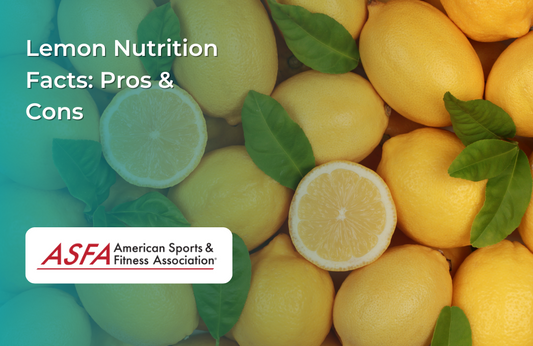Beets are much more than a visually striking addition to your plate; they are a nutrient-dense superfood with profound health benefits, especially when it comes to supporting cardiovascular health as part of a heart healthy diet. These vibrant root vegetables are not only low in calories but also packed with a wide array of essential vitamins, minerals, and bioactive compounds. From improving heart health to enhancing athletic performance and reducing inflammation, beets are a powerhouse of nutrition that can be easily incorporated into your diet.
The Fiber Content in Beets: A Digestive and Cardiovascular Ally
Beets are an exceptional source of dietary fiber, which plays a critical role in maintaining overall health, particularly in promoting digestive health and reducing the risk of chronic diseases. The high fiber content in beets supports digestive regularity by adding bulk to stool, which can help prevent constipation and promote a healthy digestive tract. Additionally, fiber in beets acts as a prebiotic, feeding the beneficial bacteria in the gut, which is crucial for maintaining a healthy gut microbiome. A balanced gut microbiome is associated with improved digestion, better nutrient absorption, and a stronger immune system.
From a cardiovascular perspective, the fiber in beets helps lower blood cholesterol levels. It does this by binding to cholesterol in the digestive system and preventing it from being absorbed into the bloodstream. This process is particularly important for reducing LDL (low-density lipoprotein) cholesterol, often referred to as “bad” cholesterol, which is a significant risk factor for heart disease. By reducing cholesterol levels, the fiber in beets contributes to a lower risk of developing cardiovascular conditions such as atherosclerosis, heart attacks, and strokes. Including healthy foods like beets, which are rich in fiber, is essential for promoting cardiovascular health and preventing heart disease.
Moreover, the fiber content in beets aids in blood pressure regulation. Consuming a diet high in fiber has been shown to help reduce both systolic and diastolic blood pressure, which is critical for maintaining heart health and reducing the risk of hypertension. The soluble fiber in beets also helps regulate blood sugar levels, making them a beneficial food for those managing diabetes or trying to prevent the onset of type 2 diabetes.
Folate in Beets: A Vital Nutrient for Heart and Cellular Health
Folate, also known as vitamin B9, is abundantly found in beets and plays a pivotal role in various bodily functions. Folate is essential for DNA synthesis and repair, making it crucial for cell division and growth. This is particularly important during periods of rapid growth, such as pregnancy and infancy. Adequate folate intake is vital for pregnant women as it helps prevent neural tube defects (NTDs), such as spina bifida and anencephaly, in developing fetuses. NTDs are serious birth defects that occur early in pregnancy, and consuming sufficient folate is one of the most effective ways to reduce the risk of these conditions.
Folate is also crucial for maintaining heart health. It helps regulate homocysteine levels in the blood, an amino acid that, when elevated, can damage the lining of arteries and promote blood clot formation, leading to an increased risk of cardiovascular diseases. High homocysteine levels are associated with a greater risk of heart attacks, strokes, and other heart-related conditions. By lowering homocysteine levels, folate in beets plays a protective role in cardiovascular health. Additionally, incorporating healthy fats from sources like avocados, fish, and nutrient-rich oils can further promote heart health by providing essential nutrients and reducing the intake of unhealthy fats.
Furthermore, folate supports brain health and cognitive function. It is involved in the production of neurotransmitters such as serotonin, dopamine, and norepinephrine, which are crucial for mood regulation, memory, and cognitive function. Low levels of folate have been linked to cognitive decline and an increased risk of neurodegenerative diseases such as Alzheimer’s. By including folate-rich foods like beets in your diet, you can support brain health and reduce the risk of cognitive decline as you age.
It is important to note that while natural folate from food sources like beets is highly beneficial, excessive intake of synthetic folic acid (the form of folate used in supplements and fortified foods) may have potential risks. High doses of folic acid have been associated with an increased risk of certain cancers, particularly colorectal cancer. Therefore, it is advisable to obtain folate from natural food sources and consult a healthcare provider before taking folic acid supplements.
The Caloric and Nutritional Profile of Beets: Low-Calorie, High-Impact, and Rich in Healthy Fats
Beets are a nutritional powerhouse, offering a rich profile of vitamins, minerals, and antioxidants, all while being low in calories. This makes them an excellent choice for those looking to maintain a healthy weight without compromising on nutritional quality. A single serving of beets provides a substantial amount of vitamin C, potassium, and manganese, along with smaller amounts of other essential nutrients such as vitamin A, iron, and calcium. Incorporating whole grains into your meals alongside beets can further enhance a balanced diet, as whole grains are rich in fiber and nutrients that support cardiovascular health.
Vitamin C, a powerful antioxidant found in beets, plays a critical role in supporting the immune system, promoting collagen production for healthy skin, and protecting cells from oxidative damage. Potassium is another essential nutrient in beets, crucial for maintaining fluid balance, regulating heart function, and supporting muscle contractions. Adequate potassium intake is associated with a reduced risk of hypertension, as it helps counteract the effects of sodium in the diet, thereby lowering blood pressure.
Manganese, a trace mineral found in beets, is involved in bone formation, blood clotting, and the metabolism of carbohydrates, amino acids, and cholesterol. It also acts as a cofactor for the antioxidant enzyme superoxide dismutase (SOD), which helps protect cells from damage caused by free radicals. By including beets in your diet, you can support bone health, improve metabolic function, and reduce the risk of chronic diseases associated with oxidative stress.
Beets also contain a unique group of antioxidants known as betalains, which give them their vibrant red color. Betalains have potent anti-inflammatory and detoxifying properties, helping to reduce inflammation in the body and support liver health. Chronic inflammation is a major contributing factor to many diseases, including heart disease, diabetes, and cancer. The anti-inflammatory properties of beets make them a valuable addition to any diet aimed at reducing inflammation and promoting overall health.
Nitrates in Beets: Enhancing Athletic Performance, Supporting Heart Health, and Regulating Blood Pressure
One of the most remarkable components of beets is their high nitrate content. Nitrates are naturally occurring compounds that, when consumed, are converted into nitric oxide in the body. Nitric oxide is a molecule that plays a critical role in vascular health by dilating blood vessels, improving blood flow, and lowering blood pressure. This vasodilation effect helps reduce the strain on the heart and improves the efficiency of oxygen delivery to tissues throughout the body. Additionally, incorporating polyunsaturated fats from sources like certain fish, avocados, nuts, and seeds can further promote heart health by lowering total blood cholesterol levels.
For athletes and those engaged in regular physical activity, the nitrates in beets can provide a significant boost in exercise performance. Research has shown that consuming nitrate-rich foods like beets can enhance endurance and reduce the oxygen cost of exercise, allowing individuals to perform at higher intensities for longer periods. This is particularly beneficial for endurance sports such as running, cycling, and swimming, where sustained performance is key.
In addition to enhancing exercise performance, nitrates in beets have been shown to reduce post-exercise inflammation and muscle soreness. This can help athletes recover more quickly and reduce the risk of overuse injuries. The anti-inflammatory properties of nitrates, combined with the antioxidants in beets, make them an ideal food for supporting recovery and maintaining optimal physical performance.
Beet greens, the leafy tops of the beetroot, are also rich in nitrates and offer additional nutritional benefits. They contain high levels of vitamins A, C, and K, along with calcium and iron, making them a nutrient-dense addition to salads, smoothies, and juices. Including beet greens in your diet provides an extra boost of heart-healthy nitrates and essential nutrients that support overall health.
Beetroots: A Nutritional Marvel and Heart Healthy Food for Heart Health and Beyond
Beetroots are a true nutritional marvel, offering a wide range of health benefits that extend far beyond their nutrient content. Their combination of fiber, folate, nitrates, and antioxidants makes them particularly effective at supporting cardiovascular health. By incorporating beets into your diet, you can help manage cholesterol levels, regulate blood pressure, and improve overall heart function. Additionally, replacing saturated fats with healthier options like beetroots can further promote heart health.
The anti-inflammatory properties of beets also make them beneficial for conditions such as arthritis and rheumatoid arthritis (RA). The betalains and other antioxidants in beets help reduce inflammation in the joints, alleviating pain and discomfort associated with these conditions. This makes beets a valuable addition to the diet of anyone dealing with chronic inflammation or joint issues.
Beets are also being studied for their potential role in cancer prevention. The antioxidants in beets, particularly betalains, have been shown to have anti-cancer properties in some studies. They help protect cells from oxidative damage, reduce inflammation, and may inhibit the growth of cancer cells. While more research is needed to fully understand the role of beets in cancer prevention, their antioxidant and anti-inflammatory properties make them a promising food for reducing cancer risk.
Culinary Uses of Beets: Versatility and Flavor
In addition to their impressive health benefits, beets are incredibly versatile in the kitchen. Their natural sweetness and earthy flavor make them a delightful addition to a wide range of dishes, from savory to sweet. Roasting beets brings out their natural sugars, enhancing their flavor and making them a perfect complement to ingredients like goat cheese, walnuts, and arugula. Roasted beets can be added to salads, grain bowls, or served as a side dish with a drizzle of olive oil and a sprinkle of sea salt. When choosing cooking oils, it's best to opt for healthier unsaturated fats and avoid coconut and palm oils due to their high saturated fat content.
Pickling beets is another popular way to enjoy their unique flavor and preserve their nutritional benefits. Pickled beets can be added to sandwiches, wraps, or served alongside charcuterie boards for a tangy and colorful addition. They pair well with other pickled vegetables like cucumbers, carrots, and onions, creating a vibrant and flavorful medley that can brighten up any meal.
For a refreshing and nutritious boost, try adding beetroot juice or beet greens to your smoothies or juices. Beetroot juice is a popular choice among athletes for its nitrate content and ability to enhance exercise performance. It pairs well with fruits like apples, berries, and citrus, creating a balanced and energizing drink. Beet greens can also be sautéed with garlic and olive oil for a simple and nutrient-packed side dish.
Beets can even be used in baking, adding natural sweetness and moisture to cakes, muffins, and brownies. Their earthy flavor pairs well with chocolate, creating a rich and indulgent treat that is also packed with nutrients. Whether you prefer your beets roasted, pickled, juiced, or baked, their versatility in the kitchen is sure to inspire creativity and add a burst of color and nutrition to your meals.
Conclusion: The Multifaceted Benefits of Beets
Incorporating beets into your diet offers a wide range of health benefits, from supporting cardiovascular health to enhancing exercise performance and reducing inflammation. Their rich nutrient profile, including fiber, folate, nitrates, and antioxidants, makes them a valuable addition to any diet focused on heart healthy eating and promoting overall well-being. With their low-calorie content and impressive array of vitamins and minerals, beets are a delicious and heart-healthy choice that can be enjoyed in a variety of culinary preparations.
Whether you are looking to boost your athletic performance, support your heart health, or simply enjoy a flavorful and nutritious vegetable, beets offer a multitude of benefits that are worth exploring. So next time you’re at the grocery store, don’t overlook these vibrant root vegetables. Incorporate them into your meals and experience the multifaceted benefits that beets have to offer for your health and beyond.




